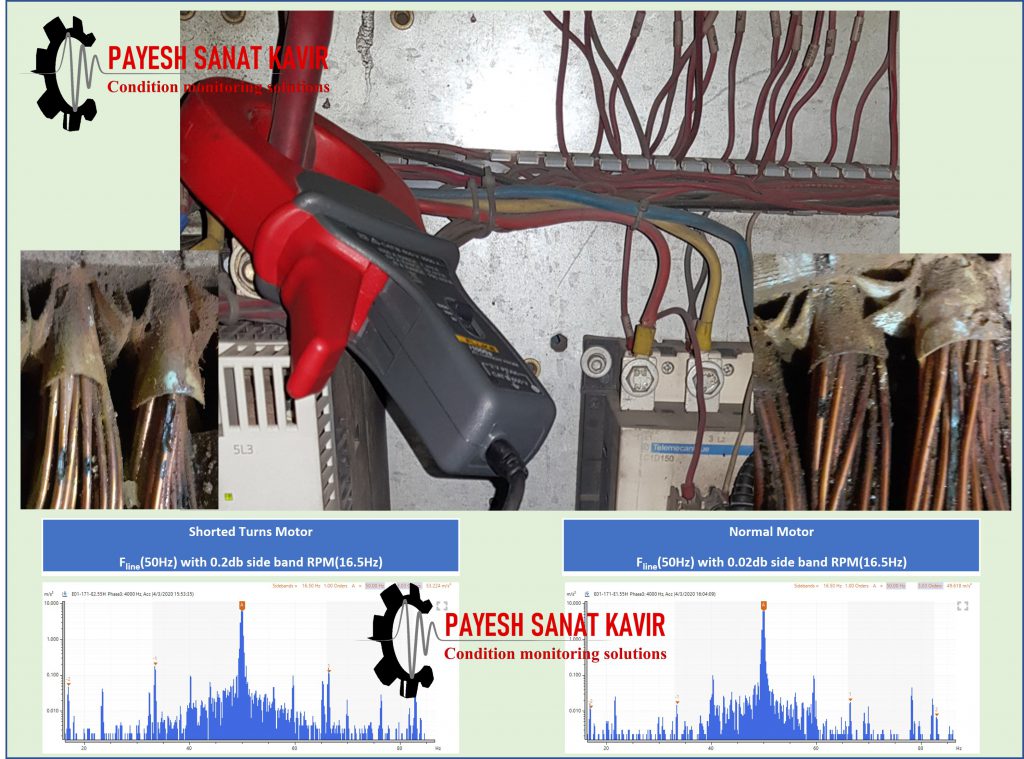
Detection of Stator Shorted-turns Fault in Three-phase Induction Motors using MCSA
The following is an excerpt from William T. Thomson’s book and VIBER X5 Application Notes No.1 (REV.A) Motor Current Signature Analysis
In fixed frequency, low voltage, main’s fed induction motors, it is generally accepted that there is normally no pre-warning of insulation degradation. It is normally the case that the insulation degradation in main’s fed, low voltage stator winding cannot be initially diagnosed via online measurements, and the first indication of a problem will be that a fault actually develops.
The concept that the rotor has already developed a fault and will need to be repaired has prevailed; hence, if it is a low voltage induction motor the often the approach is to let it run to failure.
However, in modern production processes any lead-time can be extremely advantageous since unexpected failure of a strategic. Low voltage, induction motor drive can be very costly, and, in some industries, it can be arranged for the motor to be replaced by a healthy one, and the faulty one is send for repair.
Generally, stator winding-related failures can be divided into five groups: turn-to-turns, coil-tocoil,line-to-line,line-to-ground and open-circuit faults.
Among the five failure modes, turn-toturn faults (stator turn fault) have to be considered the most challenging one since the other types of failures are usually the consequences of turn faults.